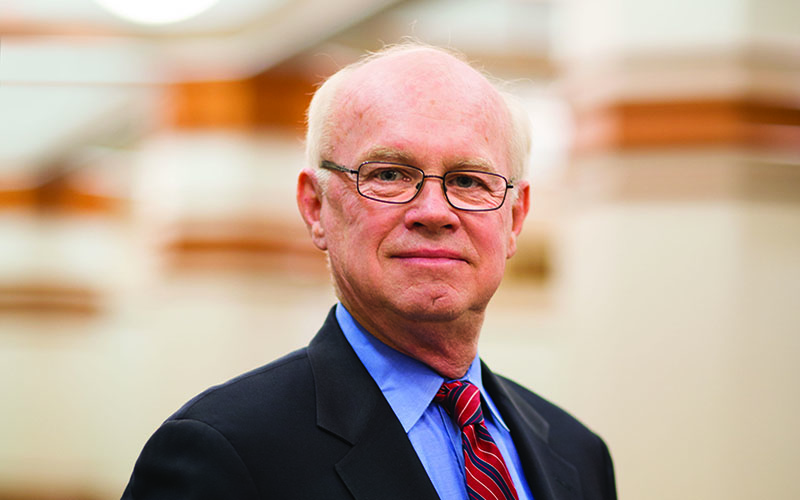Whether the subject is urban economic development or education economics, Professor of Economics William Sander is fascinated by the forces at work beneath the surface.
Why do some people choose to settle in big cities rather than in the suburbs? What is the correlation between college major, earning power and the place in which you reside? Why is Chicago’s population shrinking at the same time that median household incomes and education levels in the city are rising? Sander addresses these issues and more in his research, in the classroom, and in his role as an economic consultant for the Federal Reserve Bank of Chicago.
 Not surprisingly, Sander’s findings oftentimes have an impact close to home. For example, his research on Chicago’s changing demographics explore the waxing and waning fortunes of certain neighborhoods and racial groups in the city, thereby potentially influencing people’s thinking on such issues as housing, schooling and election of public officials.
Not surprisingly, Sander’s findings oftentimes have an impact close to home. For example, his research on Chicago’s changing demographics explore the waxing and waning fortunes of certain neighborhoods and racial groups in the city, thereby potentially influencing people’s thinking on such issues as housing, schooling and election of public officials.
Sander’s expertise has gained notice in both academic literature and popular media. One of his co-authored studies, “Teachers and Student Achievement in the Chicago Public High Schools,” which estimates the importance of teachers on student mathematical achievement, has been cited more than 1,000 times by other researchers, according to Google Scholar. Meanwhile, this spring, when the maker of Oreos decided to move production of the cookie from Chicago to Mexico, the Chicago Sun-Times published a commentary by Sander in which he shed light on the complex international trade policies that affect such business decisions.
Sander also reaches into the community through his teaching, availing himself of the real-world classroom on DePaul’s Loop Campus doorstep through several of his economics courses. He offers an upper-level economics class on the Chicago economy as well as a freshman class on the subject in which he takes students on field trips to the Chicago Board of Trade, the world’s oldest futures and options exchange, the Federal Reserve Bank and various corporate headquarters around the city.
Sander brings the world into his classroom as well, inviting prominent members of the business community to speak to his students.
“In textbooks, you get a lot of theory, but research allows me to bring real-world data and experience to bear with students, which makes the concepts much more concrete.”